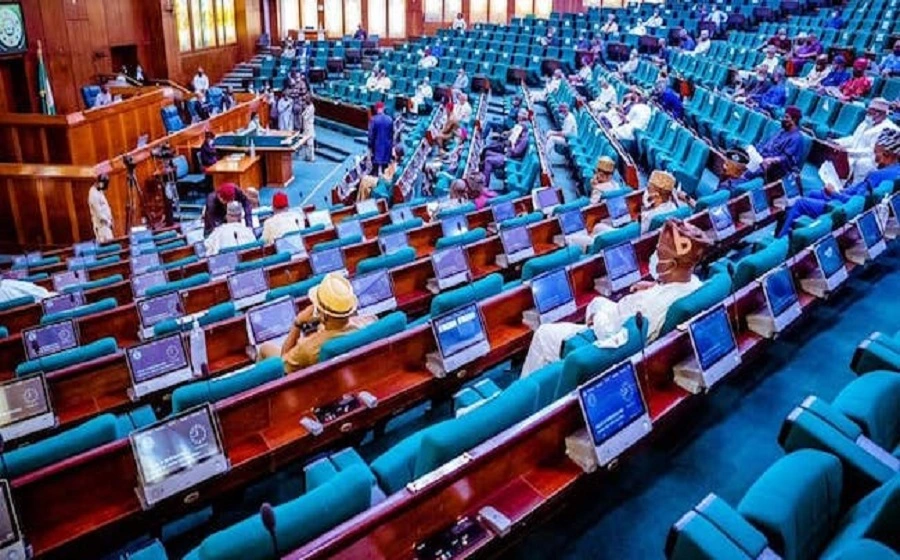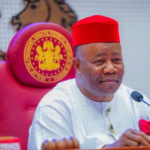Budget padding is a recurring phenomenon, which has refused to go away. The practice is a known conduit pipe where government’s ministries, departments and agencies, sometimes in cahoots with lawmakers illegally insert outrageous figures, without recourse to existing rules guiding the fiscal budgetary system.
It was in 2017, while Yakubu Dogara was speaker, House of Representatives and Abdulmumin Jibrin, chaired the House Committee on Appropriation, that this avaricious practice came to the fore. It was Jibrin who first fired the salvo, back then. He shocked Nigerians when he alleged that four principal officers of the house padded the 2016 budget to the tune of 4billion Naira, while10 committees of the House introduced projects worth about N284 billion into the budget illegally.
Regrettably, as usual in Nigeria, after the revelation, dust was raised, and as expected, the storm was over, without the perpetrators facing the law. If anything, the culprits, till date, unfortunately, are political leaders in their own rights.
This kind of attitude is one of the reasons the country regresses in almost all areas of development; because, funds meant for development purposes are diverted by officials.
NJI tasks journalists on credible reporting
Executive orders, sack, dethronement: Adeleke dancing in the storm
The Economic and Financial Crimes Commission (EFCC) and other anti-graft agencies ought to spring into action and deal with this.
Only recently, Nigerians woke up to another allegation of budget padding. In reality, budget padding is conspicuously an annual ritual where monies were made, (looted) and hidden in some MDAs and shared by various interests, including officials in some arms of the government. Obviously, it is a menace, which may not end if action is not taken.
The country’s dysfunctional budget process gives room to this malfeasance, because the ministry of finance is at liberty to prepare the budget alongside the Budget Office, unlike other climes, where the process is run efficiently. In the UK, for instance, the annual budget process passes through various stages of scrutiny before finally getting to the parliament, where the Chancellor of the Exchequer (Finance Minister) delivers the Budget statement to Members of Parliament in the House of Commons. The first thing done is the issuance of a statement, which focuses on the review of the nation’s finances and the economic situation. The statement then moves on to proposals for taxation, which play a significant role in its earnings.
In finding a lasting solution to our dysfunctional budgetary system, which allows for budget padding and other executive financial mischiefs, we must adopt part of the budgetary process in one of India’s most populous states, Odisha.
In the State of Odisha, during formulation, budget proposals from various departments are aggregated and merged by the Ministry/Department of Finance. As specified in the Odisha Budget Manual, the state’s budget preparation begins with the submission of budgets by the Drawing and Disbursement Officers (DDOs) who are based at district and sub-district levels. These budgets are submitted to the state’s Estimating Officer by the end of August each year. The Estimating and Controlling Officers scrutinize the budgets prepared at the district level and, after separation by departments, send them to the heads of the respective departments of the state by mid-November. The departmental budgets are then sent to the Finance Department where they are finalized and compiled to create the state’s budget by the end of November. The budget so prepared is approved after discussion and debate in the assembly. During this enactment phase in Odisha, the standing committee members hold detailed and intensive discussions concerning the specific departments assigned to them. Subsequently, after the budget has been approved, policies and programmes are implemented by various departments. Lastly, the Comptroller Auditor General (CAG) of India audits the departments to determine the extent to which the budget has been respected by various budget headings.
This process blocks leakages that could allow any form of budget padding, which could shortchange the country and perpetually keep millions out of reach of basic amenities and other dividends of good governance.
In order to sanitise our annual budget making process, the system must be overhauled and made less esoteric, to allow for inclusivity and transparency. To achieve that, a conscious and sustained engagement by civil society organisation, CSOs and other pressure groups that are apolitical and whose neutrality is well established should take centre stage.
BudgIT for instance has since 2011 been promoting accountability and transparency in budget process in the country. What is needed right now is more of such CSOs with the same vigour, commitment and expertise to keep an eye on the process and provoke a much needed change. Anything less, we shall continue on the same circle of this annual budget ritual that benefits only a few, at the expense of the large majority. The recent blame game between state governors and the minister of state, finance who accused them (governors) of complicity in impoverishing citizens, clearly means, we have been taken for granted, for far too long.
It must be noted, the political actors engaged in this atrocious gang rape of our patrimony are mercilessly trudging on, and won’t likely stop, until collectively as a people we stop them.
Mohammed is with the Department of Political Science and International Studies at the Ahmadu Bello University-Zaria. He sent in this piece from Kano.

 Join Daily Trust WhatsApp Community For Quick Access To News and Happenings Around You.
Join Daily Trust WhatsApp Community For Quick Access To News and Happenings Around You.

